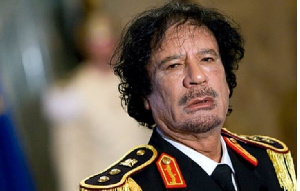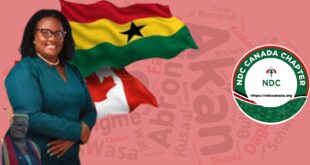If the company allows, it should be possible for Africans both on the continent and in the diaspora to have a nuanced conversation about the life and legacy of the former Libyan leader, Col. Muammar al-Gaddafi.
The caveat here is important; Gaddafi divides opinion nine whole years after a section of irate Libyans killed him, ironically in Sirte, on the permission of Western governments. Before and after his death, he was either a villain or a problematic hero, depending on where you stand.
Those whose opinions of the man were a shade of grey have always been in the negligible minority. But why is it so hard to reconcile the different aspects of the enigmatic Gaddafi?
One of the reasons, if not the chief reason, for how we perceive Gaddafi, comes down to the hyper-partisan spectacles with which global realpolitik forces us to view things. There is very little room for middle grounds, one is either here or and there and the powerless are collateral damage.
It is no secret Gaddafi had sought an international family, perhaps in fear of Western imperialism. When his dream of Pan-Arabism failed, he spent and spoke his way into the hearts of Africans south of the Sahara about the need for Pan-Africanism.
And even though he was far from succeeding, Gaddafi’s commitment to making Africa a unified and stronger political and economic bloc in global affairs was for whatever reason, stronger than the will of most. He practically walked the talk while many other African countries found reasons why this and that stood in their way.
At the end of the 20th century and at the beginning of where we now are, Gaddafi makes the cut as one of the biggest proponents of Pan-Africanism.
At the same time, he was a warmonger. Even if we overlook Western accusations of Gaddafi backing terrorist organizations, we would still have to contend with he did on the continent.
Some of his indiscretions are listed below:
Support to Charles Taylor and for Foday Sankoh
In 2011, a lawyer for ex-Liberian president Charles Taylor told the International Criminal Court (ICC) that Gaddafi had to be prosecuted in connection to the crimes committed in the Liberian civil wars because Libya’s leader gave plenty of help to Taylor.
This was after a witness, Moses Blah, had testified that he was one of about 200 people Libya trained for Taylor’s rebel group, the National Patriotic Front of Liberia (NPFL) in 1989. Outside of the tribunal, there were some assertions that Gaddafi gave more than training to NPFL rebels.
In Sierra Leone too, Gaddafi was known to have given money and arms to Foday Sankoh and his Revolutionary Union Front (RUF) during that country’s civil war.
War with Anwar Sadat of Egypt
This 1977 war was a short border conflict that was spurred by a myriad of factors, including a personal dislike for Gaddafi by Egyptian leader Anwar Sadat. But the feeling was mutual because although Gaddafi loved Sadat’s predecessor, Gamel Abdel Nasser, he hated Sadat.
The truth was Sadat was a man more open to the traditional enemies of thee Arab and Islamic world, namely Israel and the west. As a result of these factors, Gaddafi escalated a border dispute into a full blown conflict that thankfully lasted for only four days.
The famous Toyota War with Chad
Gaddafi invaded Chad in what became known as the Toyota War because of the Toyota vehicles that conveyed Chad’s troops during the fight with Libya in 1987. The Libyan leader had gone on the offensive over a border dispute and also because, according to many analysts, Gaddafi’s hatred of Hissène Habré, a man Gaddafi believed was a Western puppet.
In the end, the US and France backed Chad, who prevailed over Libya. The war is said to have cost Libya thousands of soldiers and some $1.5 billion in military armament loss.
The Islamic Legion
A few years after he took power in Libya, Gaddafi embarked on an ill-fated endeavor of creating a Pan-Sahelian Islamic state. One of the instruments for Gaddafi’s dream was to put together the Islamic Legion, thousands of half-baked mercenaries scraped among the poor in the Sahel region as well as from among Pakistani and Bangladeshi immigrants, according to Janice Thomson.
It is not clear whether the Islamic Legion was put together to scare poorer and weaker north African states into joining Gaddafi’s mission but legionnaires were used in the conflict against Chad. In Sudan too, Gaddafi tried to gain the confidence of Gafaar Nimelry by lending him support with some Legion troops.
Source: face2faceafrica.com
 Home Of Ghana News Ghana News, Entertainment And More
Home Of Ghana News Ghana News, Entertainment And More






